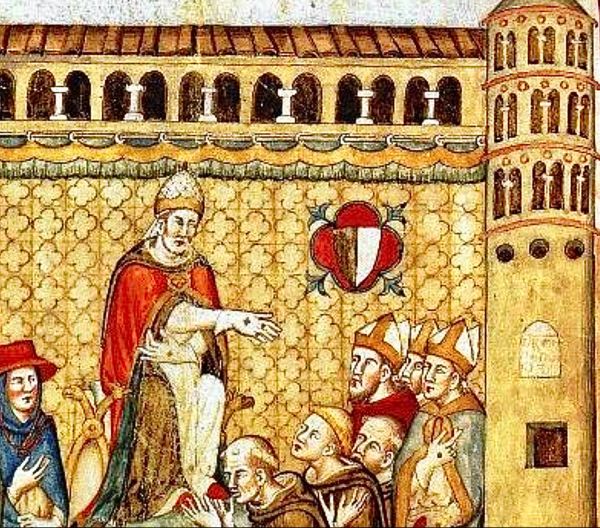In the sixth chapter of John's Gospel, Jesus speaking to his disciples tells them that only the Spirit of God can revive man and open him to new horizons.
Francis of Assisi, after his carefree youth, when he met the Lord, received a great outpouring of the Holy Spirit which, turning his life upside down, led him to a completely new existential style, overturned by the Gospel rebirth.
He considered himself a fool for Christ, "simplex et idiot"; united with Our Lady Poverty, because he was assumed by Jesus from the beginning to the end of his life and the source of divine riches.
By the work of the Spirit he was a new man, before whom bare and vital perspectives prevailed.
The world, with its deceptive appearances, no longer interested him and he was only attracted by the unloved Love.
He too, like Peter, if not with words with deeds, repeated to our Saviour:
"Jesus to whom shall I go, to whom shall we go?! You alone have words that do not pass away!".
But some passages from the Franciscan Sources support all this.
"Another time, being in Rome in the house of a cardinal, he was questioned about some obscure passages, and he expounded those profound concepts so clearly, that one would think he had always lived in the midst of the Scriptures.
Therefore the lord cardinal said to him:
"I do not question you as a man of letters, but as a man who has the Spirit of God.
And for this I gladly accept the meaning of your answer, because I know that it comes from God alone" (FF 691).
And again Celano, in the Vita prima:
"Men and women, clerics and religious flocked to see and hear the Saint of God, who appeared to all as a man from another world.
People of all ages and sexes were solicitous to admire the wonders that the Lord was again working in the world through his servant.
By reason of the presence or even the mere fame of Saint Francis, it seemed indeed that a new light had been sent down from heaven at that time to dispel the caliginous darkness that had invaded the earth" (FF 383).
Francis himself, in the Regola Bollata (1223), exhorts his followers thus:
"What they must desire above all things is to have the Spirit of the Lord and his Holy operation, to pray to him always with a pure heart and to have humility, patience in persecution and infirmity" (FF 104).
«It is the Spirit that vivifies, the flesh is of no avail. The words that I have spoken to you are spirit and are life» (Jn 6:63)
Saturday of the 3rd wk. in Easter (Jn 6:60-69)












